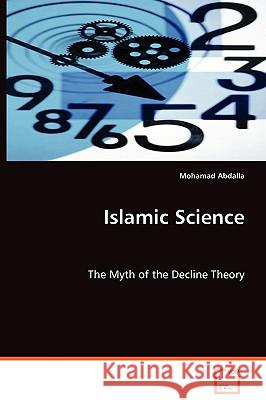Islamic Science - The Myth of the Decline Theory » książka
Islamic Science - The Myth of the Decline Theory
ISBN-13: 9783639041781 / Angielski / Miękka / 2008 / 244 str.
This book examines and critiques the theory of the decline of Islamic science using the work of the fourteenth century sociologist, Ibn Khaldun, and contemporary evidence in the fields of mathematics, medicine and astronomy. The central argument of the book is that after Ibn Khaldun there was a centuries long gap in which even excellent historians of science used simple, dismissive terms and concepts defined by a limited, but highly persistent, bundle of interpretative views with a dominant theme of decline. The book assesses the logic and empirical accuracy of the decline theory and investigates some procedural and social-physiological factors that may have given rise to inadequacies in understanding the fate of Islamic science after the eleventh century. It also attempts to construct an intellectual model for the fate of Islamic science, one that examines the cultural environment and the interactions among different cultural dynamics at work.
This book examines and critiques the theory of the decline of Islamic science using the work of the fourteenth century sociologist, Ibn Khaldun, and contemporary evidence in the fields of mathematics, medicine and astronomy. The central argument of the book is that after Ibn Khaldun there was a centuries long gap in which even excellent historians of science used simple, dismissive terms and concepts defined by a limited, but highly persistent, bundle of interpretative views with a dominant theme of decline. The book assesses the logic and empirical accuracy of the decline theory and investigates some procedural and social-physiological factors that may have given rise to inadequacies in understanding the fate of Islamic science after the eleventh century. It also attempts to construct an intellectual model for the fate of Islamic science, one that examines the cultural environment and the interactions among different cultural dynamics at work.











